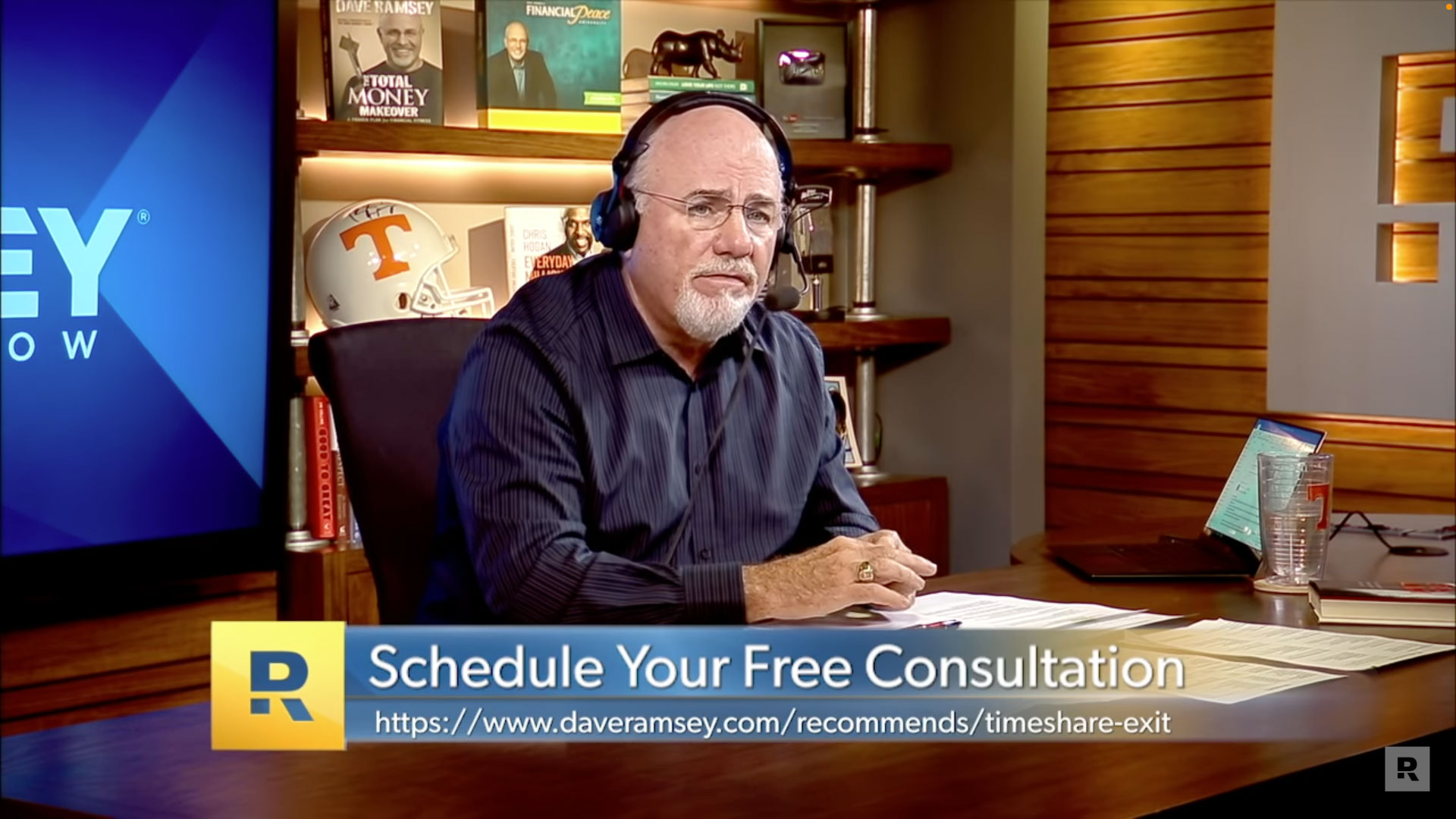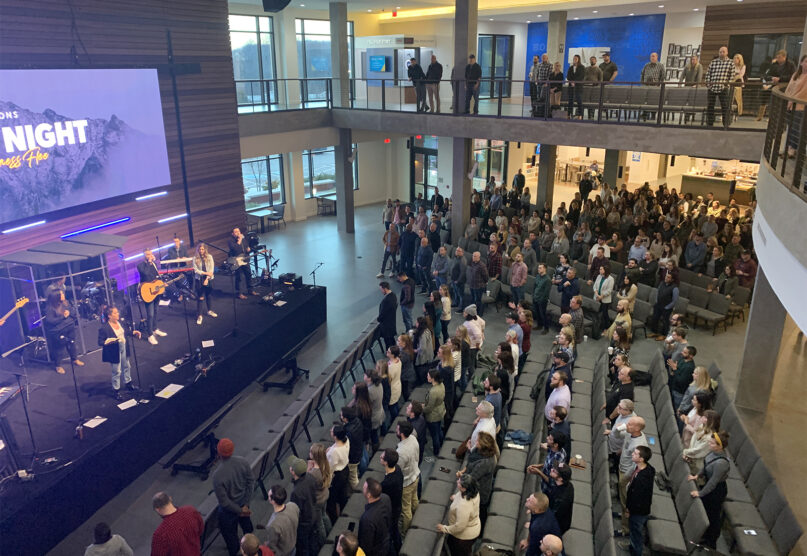(RNS) — Dave Ramsey got good news just before Christmas when a federal judge in Tennessee dismissed a lawsuit this week that had alleged that the Christian personal finance guru had discriminated against an employee’s religion during the COVID-19 pandemic. The employee had also charged that the company had a “cult-like” work environment.
Brad Amos claimed in his suit that leaders of the Lampo Group, the parent company of Ramsey’s media empire, had misled him before he moved from California to Franklin, Tennessee, to work for the company as a video editor. In the federal lawsuit, filed in 2021, Amos’ attorney argued that Amos had been promised a “drama-free, family work environment.” The bosses also told Amos that rumors the company was “cult-like” were untrue.
But once hired, Amos clashed with leaders of the company, also known as Ramsey Solutions, largely over its handling of the COVID-19 pandemic. Dave Ramsey was critical of pandemic-related shutdowns and required employees to come to the company’s offices to work at a time when many employers were allowing employees to work from home.
Ramsey Solutions did not respond to a request for comment.
Amos’ suit was just one of several in recent years challenging the way Ramsey runs his company — where employees are expected to exhibit “godly living” — but also casting doubt on Ramsey’s concern for his listeners’ financial well-being.
The company has made headlines in recent years over Ramsey’s views on COVID-19 and the company’s culture, which is influenced by Ramsey’s outspoken Christian faith. Controversies over those rules and how they are applied cost Lampo its one-time status as one of the nation’s best workplaces and led to at least three lawsuits by former employees.
One lawsuit, filed by a former employee who alleged she was fired for being gay, was settled in 2022, but a discrimination suit filed by Caitlin O’Connor, who was fired after telling her boss she was pregnant before she had married, is still active. Ramsey Solutions has defended its decision to fire O’Connor by saying it fires employees who have sex outside of marriage.
A class-action lawsuit was filed earlier this year by a group of listeners of Ramsey’s daily radio show over the show’s endorsement of a fraudulent timeshare-exit company. The suit alleges that Ramsey was paid millions to endorse Timeshare Exit Team, a now-shuttered Kirkland, Washington, firm that allegedly collected more than $200 million from its clients but failed to free them from their timeshare obligations.

A lawsuit has been filed against Dave Ramsey for advice he provided about timeshares on his daily radio show. (Video screen grab)
That lawsuit, filed in U.S. District Court for the Western District of Washington, alleges that Ramsey continued to back the company even after Washington state regulators had fined the company for fraud, blaming the timeshare company’s legal woes on the timeshare industry.
Along with running a church-based program about finances called “Financial Peace University,” and a popular radio show, Ramsey Solutions gives recommendations for real estate, insurance and mortgage service agencies, deeming them “Ramsey Trusted” providers.
A video of Ramsey endorsing Timeshare Exit Team — founded by a pair of former rain gutter salesmen and known officially as Reed Hein LLC — still appears on the Ramsey Show’s YouTube page even though the company shut down in 2022, months after agreeing to pay a $2.61 million fine to the state and to stop making deceptive claims.
A federal judge out West ruled the class-action lawsuit filed by former listeners of Ramsey’s radio show could go forward.
Ramsey, his company and the Happy Hour Media Group, which marketed the timeshare-exit business, were all named in the lawsuit, which alleges that they violated Washington state’s consumer protection act, engaged in a conspiracy, engaged in negligent mispresenting and misused consumer fees. The lawsuit also alleged that Ramsey and his company unjustly enriched themselves by endorsing the failed timeshare company.
In October, United States District Judge James Robart dismissed the unjust enrichment claim with prejudice but rejected Ramsey’s motion to dismiss the lawsuit. An amended complaint in the lawsuit was filed in mid-December.
But most of the legal claims against Ramsey have centered on his management style, which is often guided by his religious beliefs. Amos’ disagreements with Ramsey, for instance, were seen at the company as a sign of spiritual weakness. While Amos claimed in his lawsuit that he had a religious obligation to adhere to COVID-19 guidelines, Ramsey allegedly promoted a faith-over-fear response to the pandemic. When he was demoted, then fired, Amos sued, first in state court and then at the federal level, alleging religious discrimination and claiming that Ramsey had misled him about the company culture.
U.S. District Judge Eli Richardson of the U.S. District Court for the Middle District of Tennessee ruled that Amos’ lawyers had failed to show that he had been misled. Representing a company as drama-free or family-friendly was a statement of opinion, not a promise, the judge ruled.
Richardson also gave little credence to the idea that Amos was misled when Ramsey Solutions leaders denied that the company was cult-like.
Having heard that some people at the company regarded it as such, the judge wrote, “It was not reasonable to rely on contrary opinions from members of the leadership at Lampo — both because these are obviously only opinions about which people might disagree with one another, and because it is an objective reality that little stock can be placed in a company leadership’s denial of unflattering characterizations of the company.”
Richardson also ruled that the plaintiff failed to prove his dispute with Ramsey’s leadership over the COVID-19 pandemic.
“While we respect the court’s decision, we respectfully disagree with the ruling. We plan on appealing the decision to the 6th circuit,” said Jonathan Street, Amos’ attorney.





